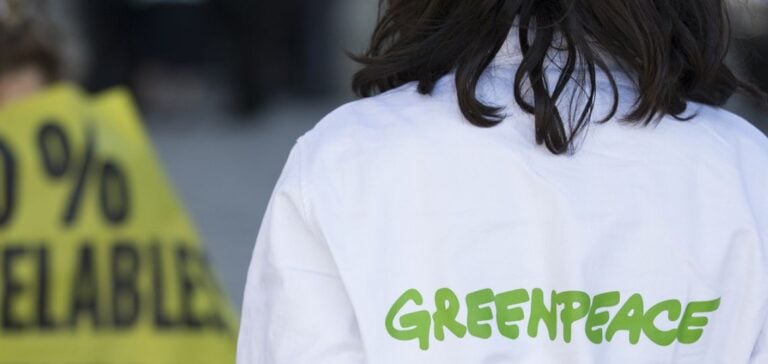Significant fines have been imposed on Greenpeace France and its activists, including General Manager Jean-François Julliard, for their participation in a blockade of the Flamanville EPR nuclear power plant. On March 31, 2022, eight Greenpeace activists dressed in white overalls blocked the entrance to the EPR nuclear power plant in Flamanville, France, for over seven hours. On the same day, seven other activists jumped the fence at dawn, displaying banners reading “No fossil fuel, no nuclear for peace” and “Nucléaire : Macron irresponsable”.
Prosecutor’s requests
The Cherbourg public prosecutor, Pierre-Yves Marot, has requested a fine of 30,000 euros against Greenpeace France. Against the activists involved, he demanded a fine of 800 euros for the intruders and 500 euros for the blockers, explaining that “the common standards of society have not been respected”. He added that allowing such acts in the name of freedom of expression would mean “open bar” for blocking nuclear power plants.
Reactions from the defense
The defense, led by lawyer Marie Dosé, argued that the action constituted “peaceful civil disobedience” and a defense of democracy. It disputed the amount of damages claimed by EDF, arguing that the 500,000 euro claim for moral prejudice was excessive and punitive without concrete evidence of impact on the employees’ work.
EDF’s position
Thibault de Montbrial, EDF’s lawyer, insisted that Greenpeace must “answer for its actions”, stressing that without a firm sentence, the intrusions and blockades would continue. He also recalled that this was his fourth trespass case against Greenpeace.
Greenpeace’s actions were aimed at criticizing President Emmanuel Macron’s revival of nuclear power, announced in his Belfort speech on February 10, 2022. Jean-François Julliard criticized the lack of democratic debate on the real costs and risks of nuclear power, declaring that the planned reactors “won’t arrive until 2040-2045, which will be too late”.






















